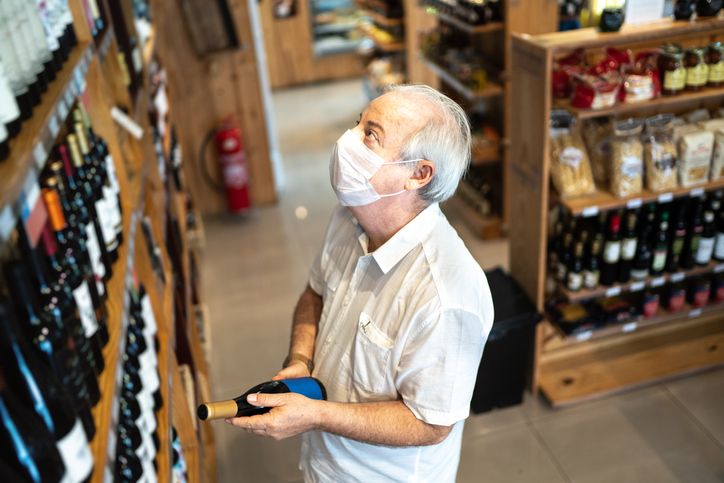
You Booze, You Lose. Especially As You Fight COVID-19
By Joy Stephenson-Laws, J.D.,Founder
In many parts of the U.S., bars are being closed in an effort to reduce the spread of COVID-19. Why? There is evidence that the 3 situations that could increase the risk for COVID-19 cases are present in bars. I am referring to the “Three Cs:” closed spaces with poor ventilation, crowded places, and close-contact settings."
Reportedly, there may be "other factors at play in bars that make them potential virus flashpoints. Alcohol lowers inhibitions, so people forget precautions, said Natalie Dean, an infectious diseases expert at the University of Florida."
Some states have closed indoor seating in bars and allowed outdoor patios where they can dispense liquor in less crowded spaces. They may also allow the sale of 'to-go' cocktails in some areas. So despite the indoor bar closures, it may still be easier for us to consume more alcohol.
Now, I’m not trying to be the party police, but, quite frankly, Americans don't need to be encouraged to drink inside or outside a bar. We are consuming way too much alcohol in my opinion. According to a recent report from the National Institute on Alcohol Abuse and Alcoholism, Americans consumed more than 7 billion gallons of alcohol in 2018!
“Americans are drinking more now than when Prohibition was enacted — a trend that’s been rising for two decades with no clear end in sight,” reports the Los Angeles Times.
“That’s the picture painted by federal health statistics, which show increases in per-capita alcohol consumption and emergency room visits, hospitalizations and deaths tied to drinking.”
Furthermore, reports show that Americans are drinking their way through the COVID-19 pandemic. Alcohol sales are up and people are stressed and spending more time at home where they consume excessive alcohol.
To give you even more perspective, one MarketWatch report says that Nielsen recently announced that online alcohol sales were up 243 percent!
On the other hand, Australians seem to have appreciated the importance of consuming less alcohol during this pandemic. A recent study conducted in Australia revealed that overall Australians don’t seem to be increasing their intake of alcohol despite COVID-19.

“Overall, those consuming none, less or about the same for all alcohols [red wine, white wine, beer and spirits] was between 82%–85%, so only 15%–18% consumed more,” according to one report discussing the study.
Americans might want to strongly consider taking a page from Australia’s book.
Drinking alcohol excessively can wreak havoc on the immune system. The truth is that pandemic or no pandemic, we should always be proactive about keeping our immune systems in top shape. But COVID-19 has certainly made us more aware of our immune systems. Should we get this virus, we certainly want to be in the best position to fight it off.
Still, so many people are still drinking too much. I don’t think they really realize how detrimental this can be, because drinking is such a big part of American culture.
Drinking promotes inflammation throughout the body and depletes the body of essential vitamins and minerals such as zinc, vitamin C, magnesium, iron and more. These are all nutrients that we all need to fight the coronavirus as well as other viruses and infections.
In a recent report, Dr. Majid Afshar, a pulmonologist and critical care specialist and assistant professor at Loyola University Chicago Stritch School of Medicine, highly recommends drinking alcohol in moderation if you do drink.
Booze and fighting COVID-19 do not mix!"High levels or unhealthy levels of alcohol consumption are not helpful for our immune system and impairs our ability to fight off infections," said Dr. Afshar, who has extensively studied alcohol’s effect on the immune system and how it impacts breathing and lung health.
According to Dr. Afshar, “excessive alcohol use (at least four or five drinks over a few hours) can alter our cytokine response, or signaling proteins, which regulate the body's immune response.”
Furthermore, just one drunken episode “...exerted effects on the immune system that caused an early and transient pro-inflammatory state followed by an anti-inflammatory state."
And these inflammation fluctuations can affect the body’s hormone levels as well as the body’s ability to not only fight disease but also heal from it.
“Alcohol can also increase the number and severity of respiratory infections. The COVID-19 virus can lead to respiratory complications, especially in individuals with an alcohol use disorder,” according to the report.
So there you have it. Booze and fighting COVID-19 do not mix!
Again, I am not trying to be the party police. I know people are celebrating Fourth of July soon, but remember that you can still celebrate without compromising your health. And if you are constantly drinking excessively, it’s important to determine why that is. Perhaps you are depressed or anxious. These issues need to be addressed in order to live your healthiest and happiest life.
Read here to check out some resources that may help.
Just two drinks a day for women and three drinks a day for men is enough to disrupt the immune system. It is also important to be mindful of how many ounces of beer, wine or spirits are considered to be one drink. Most of us overpour and overserve. So if you think you are having one glass of wine, you may really be having a glass and a half or two glasses.
According to the National Institute on Alcohol Abuse and Alcoholism, just five ounces is considered to be a proper pour of wine. It is also important to be aware of alcohol percentage. For example, a five ounce pour of wine is usually around 12 percent alcohol, and one and a half ounces (a shot) of distilled spirits (gin, rum, vodka, tequila, whiskey, etc.) is about 40 percent alcohol. It’s important to know how much you are drinking and what you are drinking. And to me, it’s just as important to know why you are drinking the amount you are drinking.
If you still need more motivation to ditch or lay off the booze, less alcohol usually contributes to better skin, better mood, weight loss and even better sexual function.
Enjoy your healthy life!
The pH professional health care team includes recognized experts from a variety of health care and related disciplines, including physicians, attorneys, nutritionists, nurses and certified fitness instructors. This team also includes the members of the pH Medical Advisory Board, which constantly monitors all pH programs, products and services. To learn more about the pH Medical Advisory Board, click here.







